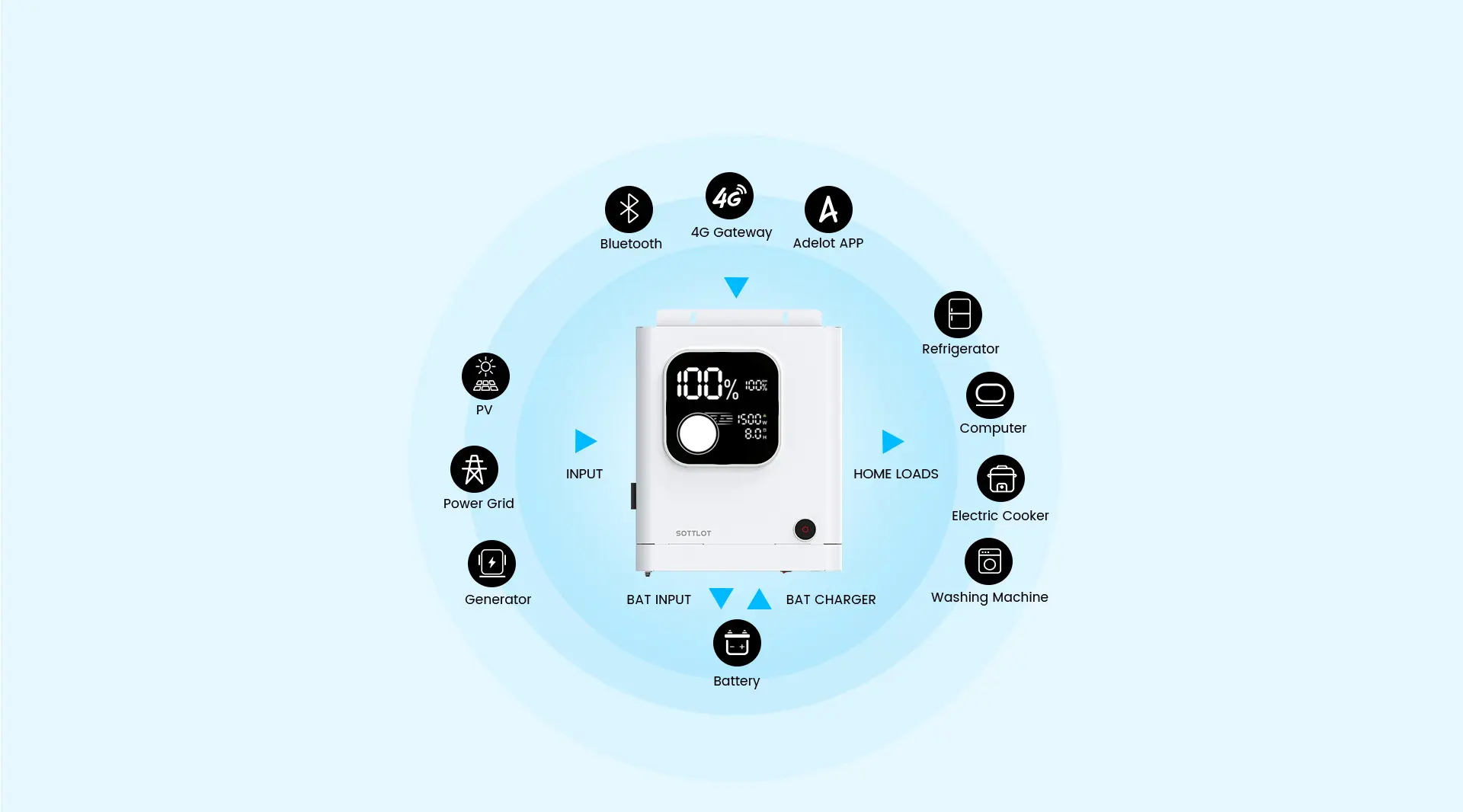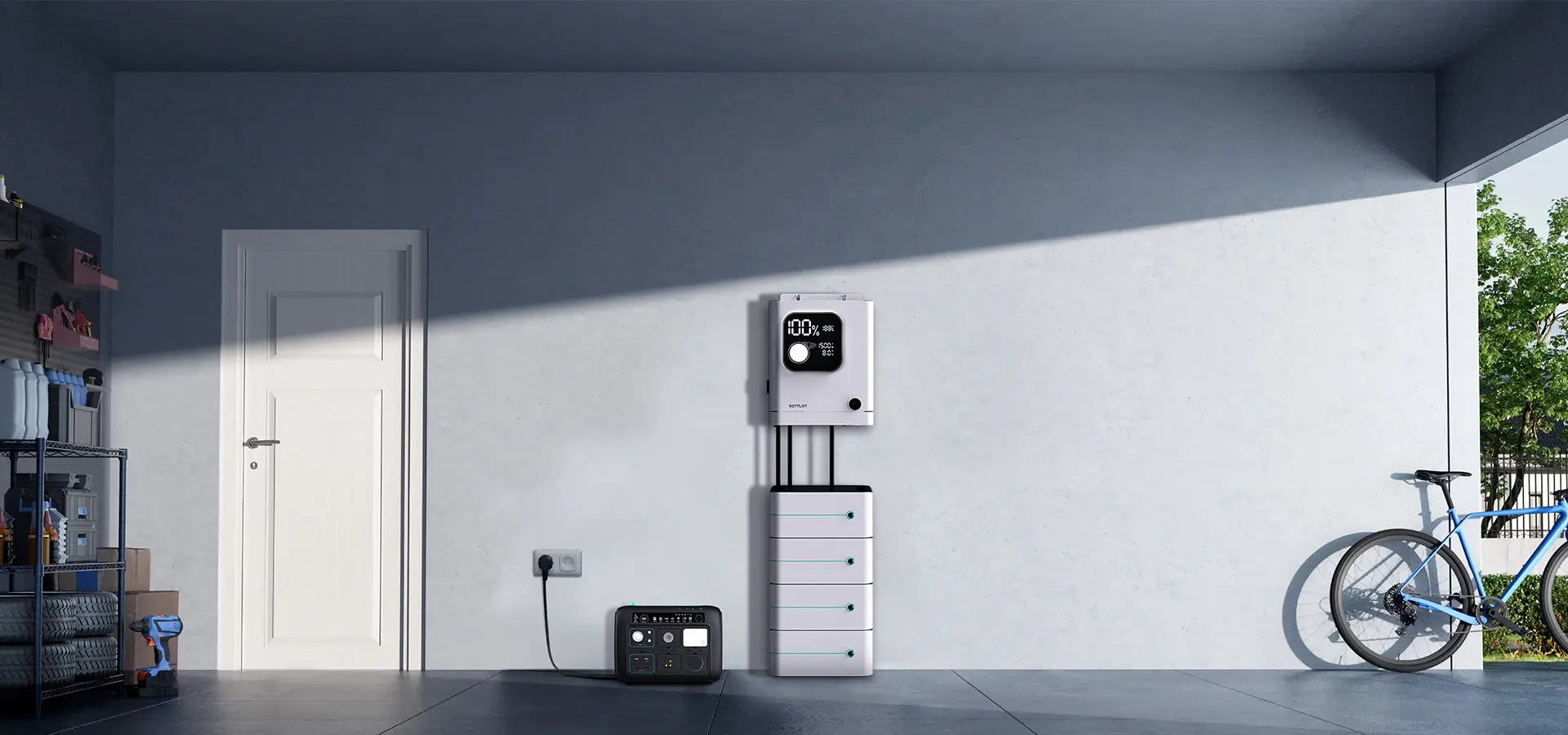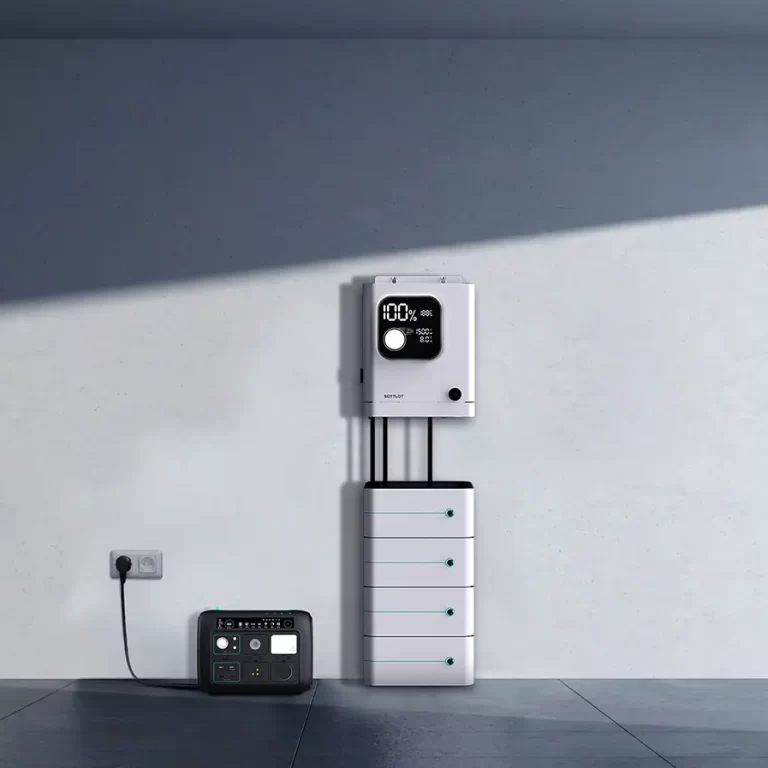In modern households, with the utilization of renewable energy and the pursuit of energy independence, home energy storage systems have gradually attracted attention. As one of the core components of the home energy storage system, the off-grid inverter’s working principle is crucial to understanding the operation of the entire system.

1. Basic concept of off-grid inverter Off-grid inverter is a device that converts direct current into alternating current. It plays a key role in home energy storage systems, converting stored DC power into AC power that can be used in the home.
2. Working principle
DC input
A battery bank or other DC source in a home energy storage system feeds DC power into an off-grid inverter. The inverter will filter and stabilize the input DC power to ensure the stability and purity of the input voltage.
contrarian process
Off-grid inverters use inverter technology to convert DC power into AC power through a series of electronic components and circuits. This process involves the turn-on and turn-off of the switch tube, as well as the step-up or step-down effect of the transformer.
Control System
The inverter is equipped with a control system inside, which is responsible for monitoring and regulating the inversion process. The control system will accurately control the conduction time and frequency of the switch tube according to the voltage, current and load requirements of the input DC power to ensure that the output AC power has stable voltage, frequency and waveform.
Output AC power
After inversion processing, the off-grid inverter outputs the generated AC power to household loads or electrical equipment. The output AC power can be run in parallel with the mains power grid, or it can independently provide power support for households when the mains power is interrupted.
3. Key technologies and characteristics
PWM modulation technology
Pulse width modulation (PWM) technology is a commonly used technology in off-grid inverters. By changing the pulse width, the voltage and frequency of the output AC power can be controlled to achieve efficient power conversion.
MPPT Technology
Maximum Power Point Tracking (MPPT) technology is used to maximize the output power of DC power sources such as solar panels. It can dynamically adjust the operating point of the inverter to adapt to the best output under different lighting conditions.
Efficient conversion
The design of off-grid inverters focuses on improving conversion efficiency to reduce energy losses. The selection of efficient inverter circuits and electronic components can maximize the energy utilization efficiency of the system.
Protection functions
Off-grid inverters usually have a variety of protection functions, such as overvoltage protection, undervoltage protection, overcurrent protection, short circuit protection, etc., to ensure safe and reliable operation of the system.
4. Application scenarios and advantages
emergency backup power supply
In the event of a mains power outage or power outage, the off-grid inverter can quickly switch to backup power supply to provide continuous power supply for households and ensure the normal operation of important equipment and living facilities.
independent energy system
For households located in remote areas or without access to mains power, off-grid inverters can be used in conjunction with renewable energy power generation systems (such as solar, wind, etc.) to achieve independent energy supply.
Energy and cost savings
By rationally utilizing energy storage systems and off-grid inverters, high-price electricity consumption can be avoided during peak electricity price periods and energy and cost savings can be achieved.
Environmentally friendly and sustainable
Off-grid inverters in home energy storage systems help reduce dependence on traditional fossil energy, promote the use of renewable energy, and have positive significance for environmental protection and sustainable development.
Alpha3000 is a multifunctional solar off-grid inverter with built-in MPPT solar controller, high-frequency pure sine wave inverter and UPS function module. The controller adopts advanced MPPT calculation method and intelligent battery management design. To ensure the acquisition of greater energy, the inverter adopts high-frequency design, with high power density, small size, simple operation and other advantages. The whole machine has high efficiency and small no-load loss. By connecting to the Bluetooth of a mobile phone, users can control the operating status or view information through the mobile phone anytime and anywhere. It has intelligent monitoring and management functions and can be connected to other devices through the communication interface to achieve remote monitoring, data collection and fault diagnosis.
In short, off-grid inverters play an important role in home energy storage systems, and their working principle involves efficient conversion of DC power to AC power. Through advanced technology and intelligent control, off-grid inverters provide reliable power support for households and promote the utilization of renewable energy and the realization of energy independence.




